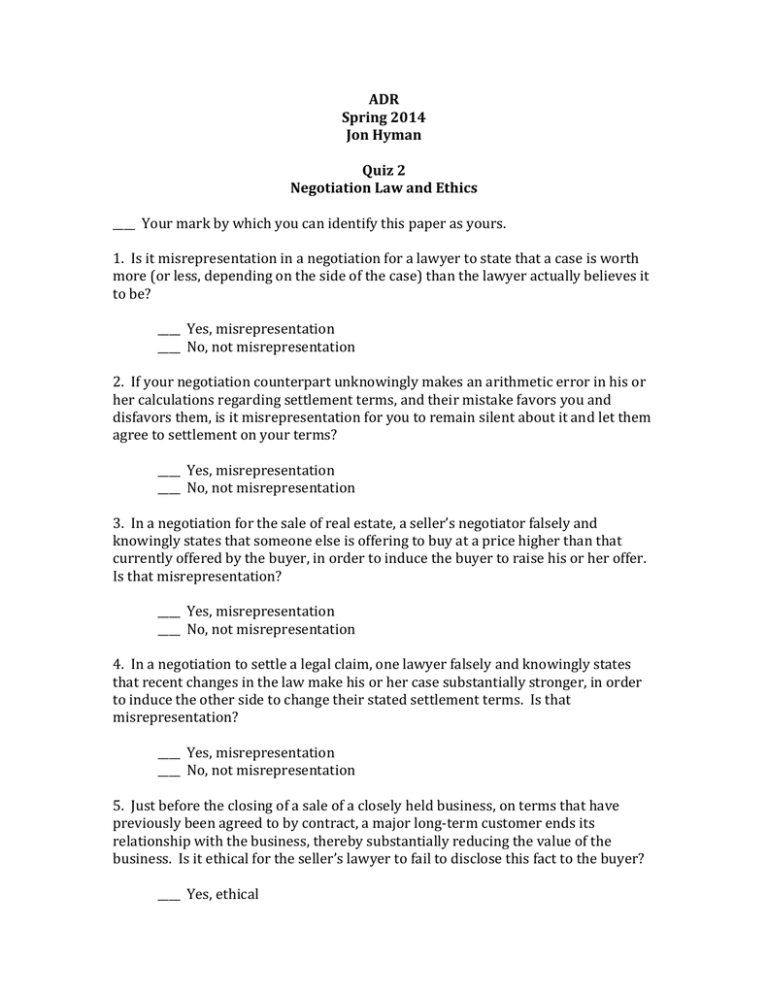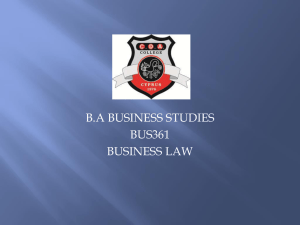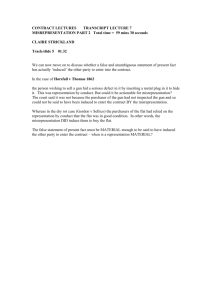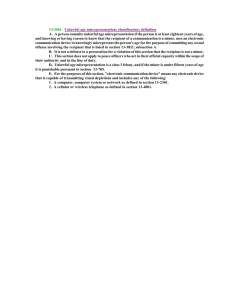ADR Spring 2014 Jon Hyman
advertisement

ADR Spring 2014 Jon Hyman Quiz 2 Negotiation Law and Ethics ____ Your mark by which you can identify this paper as yours. 1. Is it misrepresentation in a negotiation for a lawyer to state that a case is worth more (or less, depending on the side of the case) than the lawyer actually believes it to be? ____ Yes, misrepresentation ____ No, not misrepresentation 2. If your negotiation counterpart unknowingly makes an arithmetic error in his or her calculations regarding settlement terms, and their mistake favors you and disfavors them, is it misrepresentation for you to remain silent about it and let them agree to settlement on your terms? ____ Yes, misrepresentation ____ No, not misrepresentation 3. In a negotiation for the sale of real estate, a seller’s negotiator falsely and knowingly states that someone else is offering to buy at a price higher than that currently offered by the buyer, in order to induce the buyer to raise his or her offer. Is that misrepresentation? ____ Yes, misrepresentation ____ No, not misrepresentation 4. In a negotiation to settle a legal claim, one lawyer falsely and knowingly states that recent changes in the law make his or her case substantially stronger, in order to induce the other side to change their stated settlement terms. Is that misrepresentation? ____ Yes, misrepresentation ____ No, not misrepresentation 5. Just before the closing of a sale of a closely held business, on terms that have previously been agreed to by contract, a major long-term customer ends its relationship with the business, thereby substantially reducing the value of the business. Is it ethical for the seller’s lawyer to fail to disclose this fact to the buyer? ____ Yes, ethical ____ No, unethical 6. A plaintiff is threatening to sue a defendant with whom he/she had an intimate relationship, alleging that the defendant gave the plaintiff a terrible disease as a result of their intimacy. The plaintiff has recently learned that he/she is now disease-free. No discovery has yet been taken, but settlement discussions are underway. The plaintiff instructs her/his lawyer not to reveal this improvement, which would eliminate or substantially reduce the value of the plaintiff’s claim, and destroy the chances of a large value settlement. May the lawyer abide by the client’s instructions and fail to disclose? ____ Yes, follow the client’s instructions and don’t disclose. ____ No, don’t follow the client’s instructions; disclose. 7. The correct approach to bargaining ethics is to follow the “poker” school, misleading as one would in poker, because those are the rules and customs of negotiation that everyone knows or should know. ____ Yes, it’s the correct approach ____ No, it’s not the correct approach ____ Depends (on what?)


